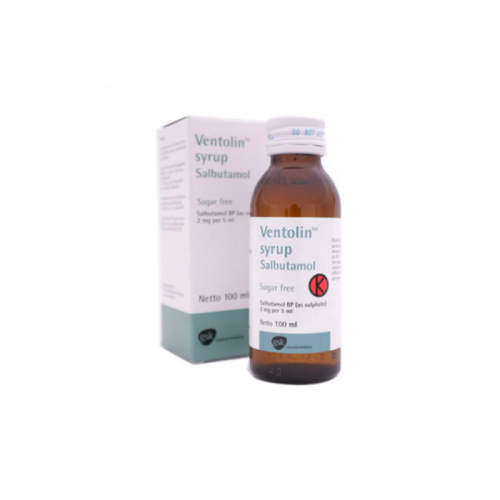ACTIVE HALF-LIFE
6 Hours
CLASSIFICATION
Beta-2-Agonist
DOSAGE
10-20 mg/day
ACNE
No
WATER RETENTION
No
HBR
No
HEPATOTOXICITY
No
AROMATIZATION
No
MANUFACTURER
GSK
WAREHOUSE
International Warehouse 2
SUBSTANCE
Salbutamol
,
Ventolin, or albuterol, is a medication that relaxes the medium and large airways in the lungs. It is commonly prescribed for treating asthma, including asthma attacks, exercise-related bronchoconstriction, and chronic obstructive pulmonary disease (COPD). Additionally, it can help manage elevated potassium levels in the blood. Ventolin is primarily administered through an inhaler or nebulizer, but it is also available in pill form and as an intravenous solution. The inhaled version typically begins to work within 15 minutes and its effects can last between two to six hours.
Frequent side effects include shaking, headaches, rapid heart rate, dizziness, and feelings of anxiety. More serious side effects can be worsening bronchospasms, heart rhythm irregularities, and low potassium levels. Although Ventolin can be used during pregnancy and breastfeeding, its safety is not completely established. As a short-acting β2 adrenergic receptor agonist, it functions by relaxing the smooth muscles in the airways.
Medical UsesVentolin is commonly used to alleviate bronchospasms from various causes, including allergic asthma and exercise-induced bronchoconstriction, and is a standard treatment for chronic obstructive pulmonary disease. It is often found in rescue inhalers, serving as a short-term bronchodilator for asthma attacks. As a β2 agonist, salbutamol is also utilized in obstetric settings; intravenous salbutamol can act as a tocolytic to ease uterine smooth muscle tension and delay premature labor. While it was once preferred over tocolytic agents like atosiban and ritodrine, its use has largely been supplanted by the more effective and better-tolerated calcium channel blocker nifedipine, which is taken orally.
Moreover, Ventolin has been employed to address acute hyperkalemia by promoting the movement of potassium into cells, thereby reducing blood potassium levels.
Adverse EffectsCommon side effects include slight tremors, anxiety, headaches, muscle cramps, dry mouth, and palpitations. Other potential symptoms may encompass tachycardia, arrhythmia, skin flushing, rare myocardial ischemia, and changes in sleep and behavior. More serious, albeit rarer, reactions may include allergic responses such as paradoxical bronchospasms, urticaria (hives), angioedema, hypotension, and fainting. Prolonged or excessive use can lead to hypokalemia, which is particularly concerning for patients with kidney issues and those taking specific diuretics and xanthine derivatives.
Keep out of reach of children. For adult use only.
Warnings:
